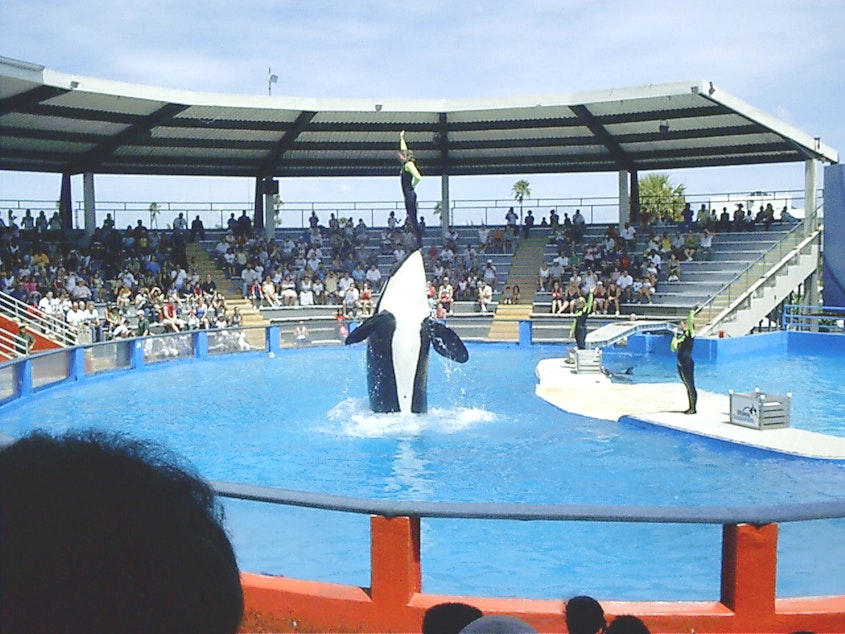Orca taken in the 1970s to be released from captivity, returned to PNW

The Miami Seaquarium has announced that it will begin the work of releasing the last remaining captive southern resident orca and bringing her home to the Salish Sea.
She has many names, including Lolita.
“Lolita is a showgirl's name," said Tah-Mahs Ellie Kinley. "That is not who she is anymore."
Kinley is the president of Sacred Sea, a nature conservation group based in Washington that originated out of the Lummi Nation. The killer whale in captivity in Miami has been called Lolita and Tokitae, but Kinley calls her Sk'aliCh'elh-tenaut.
“That’s the name that comes from the village site that she was captured," she said.
The orca's release would be another step toward bringing the whole pod back together. Sk'aliCh'elh-tenaut was taken in the 1970s.
Sponsored
“She’s had 50 years of public life and now it’s time for her to retire,” Kinley said. “I hope that people can be good enough to be able to leave her alone and have her peace when she’s brought home, because she deserves it.”
Kinley said it’s a lengthy process to move the whale back to Puget Sound. Sacred Sea is currently raising money for the possible relocation effort. They've been working to bring the whale home for eight years, and have built relationships with other groups around the nation who have been around for longer.
Lummi elder Raynell Morris played a role in that, serving on the on the board of Friends of Lolita, a Miami-based nonprofit that collaborated with other groups to bring the orca back to the Salish Sea.
Lummi Nation Chair Anthony Hillaire said Morris was relentless in her work. He added Sk'aliCh'elh-tenaut’s path home speaks to a larger historic context.
“She represents the story of all Native peoples that have experienced genocide and the bad policies that have been put in place to ‘kill the Indian and save the man,’” Hillaire said in a statement. “But more importantly she represents our resilience and strength and our need for healing.”
Sponsored
He also said that the orca's return is a reminder about the need to make other efforts for the whales like saving the salmon, and restoring and maintaining salmon habitats.
Around the time Sk'aliCh'elh-tenaut was taken into captivity, the southern resident orca population had reached around 70. The number of southern resident orcas now stands at 73 (as of January 2023), divided into three pods — J, K, and L. The whales remain on the endangered species list and their population has declined 10% since 2005, according to NOAA.
“Tokitae has spent most of her life in captivity,” said Lauren Gaches, a spokesperson for NOAA Fisheries. “She holds great importance to the Lummi Nation and everyone else working to recover southern resident killer whales in the Pacific Northwest.”




